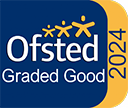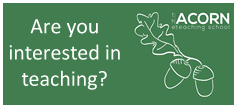Nursery News 6th October 2025
NURSERY NEWS
6th October 2025 – Edition 385
Find out About:
A. Parent Consultations- A reminder
B. How to keep your child healthy over the coming Autumn/ Winter season.
C. A case of Headlice in Big Nursery.
D. What are the children learning about this week?
A. Parent Consultations-A reminder
We aim to offer all parents the opportunity to have a Parent Consultation with their child’s keyworker once per term
Little Nursery will be having their Parent Consultations during week beginning Monday 21th October, 2025
These consultations are offered to talk about how your child is settling in. They are not compulsory, but if you would like an appointment please arrange this with your child’s keyworker when they are outside before morning sessions, or after afternoon sessions.
B. How to keep your child healthy over the coming Autumn/ Winter season.
With the new school term starting, children spend more time together, which can lead to more colds, flu, and other illnesses.
Here are some ways to keep your children healthy and in school:
1.Keep your child’s vaccinations up to date.
Measles and whooping cough are still around. The best way to protect your child from getting sick is to make sure they have had all their vaccines. If you are unsure. you can ask your GP or use the NHS app to check.
- Make sure your child gets the flu vaccine.
Flu can make children very sick. The Flu vaccine reduces the risk of needing hospital care. Most children from age 2 to 16 can get the vaccine. The vaccine is usually a quick, painless spray in the nose. There is also a version without pork ingredients. Children aged 2-3 can get the flu vaccine at their GP. Vaccinating your child also helps protect others, like family members, from getting the flu.
3.Teach your child good handwashing habits.
Washing hands helps stop the spread of germs. Remind your child to wash their hands after using the toilet and before eating. Teach them to use tissues for coughs and sneezes and to throw them in the bin afterwards.
- Know when to keep your child at home.
Sometimes it is hard to know if your child should stay home. For minor illnesses, like a slight cough or cold, it’s usually OK to send them to school. But if they have a high temperature or a rash, keep them at home and speak to your GP
C. A case of Headlice in Big Nursery.
A parent kindly telephoned me today to inform me her child had head lice. I would ask that all parents check their child’s hair.
I have copied the following information from an NHS information website, which you may find useful.
Head lice and nits
Head lice and nits are very common in young children and their families. They do not have anything to do with dirty hair and are picked up by head-to-head contact.
Check if it’s head lice
–Head lice are small insects, up to 3mm long
-They can be difficult to spot in your hair
-Head lice eggs (nits) are brown or white (empty shells) and attached to the hair
Head lice can make your head feel:
- itchy
- like something is moving in your hair
The only way to be sure someone has head lice is by finding live lice.
You can do this by combing their hair with a special fine-toothed comb (detection comb). You can buy these online or at pharmacies.
How to get rid of head lice
Important
You can treat head lice without seeing a GP.
Treat head lice as soon as you spot them.
You should check everyone in the house and start treating anyone who has head lice on the same day.
There’s no need to keep your child off school if they have head lice.
Wet combing
Lice and nits can be removed by wet combing. You should try this method first.
You can buy a special fine-toothed comb (detection comb) online or from pharmacies to remove head lice and nits.
There may be instructions on the pack, but usually you:
- wash hair with ordinary shampoo
- apply lots of conditioner (any conditioner will do)
- comb the whole head of hair, from the roots to the ends
It usually takes about 10 minutes to comb short hair, and 20 to 30 minutes for long, frizzy or curly hair.
Do wet combing on days 1, 5, 9 and 13 to catch any newly hatched head lice. Check again that everyone’s hair is free of lice on day 17.
Medicated lotions and sprays
Ask a pharmacist for advice if you have tried wet combing for 17 days, but your child still has live head lice.
They may recommend using medicated lotions and sprays. These kill head lice in all types of hair, and you can buy them from pharmacies, supermarkets or online.
Head lice should die within a day. Some lotions and sprays come with a comb to remove dead lice and eggs.
Some treatments need to be repeated after a week to kill any newly hatched lice.
Check the pack to see if they’re OK for you or your child and how to use them.
If lotions or sprays do not work, speak to a pharmacist about other treatments.
Some treatments are not recommended because they’re unlikely to work.
For example:
- products containing permethrin
- head lice “repellents”
- electric combs for head lice
- tree and plant oil treatments, such as tea tree oil, eucalyptus oil and lavender oil herbal remedies
You cannot prevent head lice
There’s nothing you can do to prevent head lice.
You can help stop them spreading by wet or dry combing regularly to catch them early.
Do not use medicated lotions and sprays to prevent head lice. They can irritate the scalp.
There’s no need for children to stay off school or to wash laundry on a hot wash.
D. What are the children learning about this week?
The theme this week is ‘who is who in nursery?’
This week each morning the children will see photographs of each member of staff and they will learn the names of the staff. This is to help the children to feel more at ease with the staff and to encourage children to use names when talking to someone. We will talk about the importance of addressing people by their names and recognizing who each person is and where they work within the nursery. Learning the names of the people around you, helps to build confidence and create a sense of self.
The learning intention this week is for the children to be able to count up to five items, recognizing that the last number said, represents the total counted so far. Children will be taught lots of number songs to help them count in order and they will be encouraged to check their counting by using fingers to represent the numbers.
The skill we will be focusing on this week is riding a bike. We have a large selection of bikes for the children to use, including two wheeled bikes, tricycles and tandems. We will provide a timer to support the children to take turns on the bikes and play fairly. All children are encouraged to ride safely and to park their bikes up in the designated parking area after their turn.



